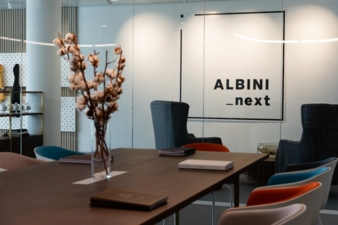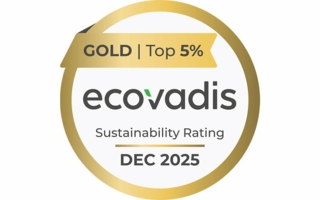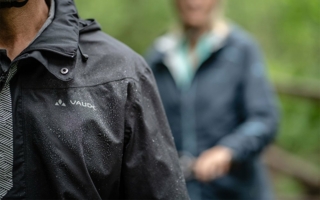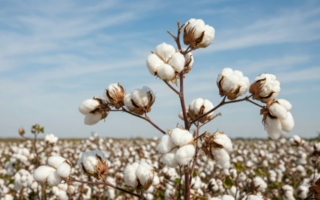20/09/2022 – Dyeing
Collaboration towards more sustainable practices
Albini next and Vienna Textile Lab collaborate to explore the possibility of employing microbial colours for dyeing applications on cotton and other natural fibres.
The world of textiles is changing; the demand for more sustainable production methods, with less environmental impact are becoming increasingly important for retailers, brands, and producers. In order to transform and improve the textile industry towards becoming less environmentally harmful, new clean technologies and processes are required.
Albini next, the Albini Group innovation hub, and Vienna Textile Lab are excited to announce their collaboration project in which they explore together the possibility of employing microbial colours for dyeing applications on cotton and other natural fibres. The objective of this joint project is to develop a more sustainable dyeing method to colour textile products. This initiative is one of the projects supported by Kering Material Innovation Lab.
“Our innovation hub is the starting point for reaching innovation’s new frontiers, which is possible only collaborating with realities such as Kering and Vienna Textile Lab. Together we can reach incredibly high levels of innovation and sustainability, as we are doing with the transformation of microbial colours into new innovative dyes, a more sustainable alternative to conventional synthetic colours. It is a long process: it takes time and effort, but together we will achieve unprecedented results,” states Stefano Albini, Albini President.
Working in this exciting project together with Albini next and Kering Material Innovation Lab opens new opportunities for the innovator Vienna Textile Lab. “The renaissance of biodegradable, nontoxic and natural dyes has come as we see a growing number of sustainable fashion brands and consumer sentiment impacting the sector. We see ourselves as an “enabler” for all these different sustainability goals. Working together with strong industry partners like Kering and Albini helps us to understand how our microbial dyes behave on different fabrics. We learn so much through our close cooperation and can therefore bring our manufacturing method better and faster to an industrial level,” says Karin Fleck, CEO and founder of Vienna Textile Lab.
- Albini next and the textile innovability: Albini next is the Albini Group think tank launched in 2019 and devoted to accelerating ideas and the technological transfer between science and industry. It imagines and creates new products and processes, with a creative and unconventional approach that seeks unprecedented solutions for specific problems in the textile field. Albini next is searching for what does not exist yet. It takes input, ideas, and solutions from different sectors, combines and reworks them to bring out their unexplored potential.
- About Kering: A global Luxury group, Kering manages the development of a series of renowned Houses in Fashion, Leather Goods and Jewelry: Gucci, Saint Laurent, Bottega Veneta, Balenciaga, Alexander McQueen, Brioni, Boucheron, Pomellato, DoDo, Qeelin, as well as Kering Eyewear. By placing creativity at the heart of their strategy, Kering enables its Houses to set new limits in terms of their creative expression while crafting tomorrow’s Luxury in a sustainable and responsible way.
- Vienna Textile Lab and their novel microbial dyes: Vienna Textile Lab is an Austrian biotech startup working to produce microbial dyes from natural occurring microorganisms for textile applications across the textile and fashion industry. Their aim is to create a competitive and more sustainable alternative to traditional synthetic dyes and pigments. With circularity in mind, Vienna Textile Lab enables their customers to create more sustainable products that are less toxic while supporting biodiversity and zero waste, as they shift towards improving production practices.




